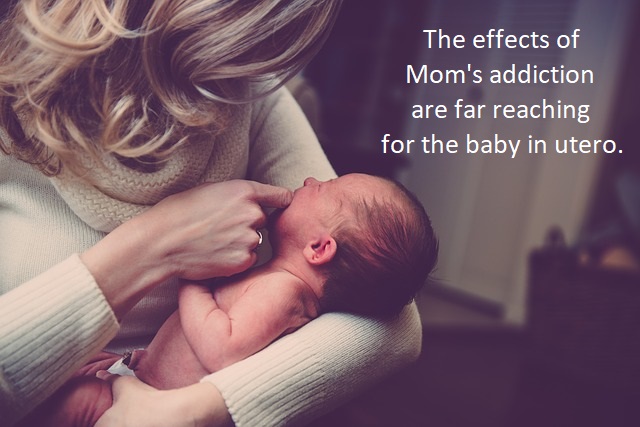April is Alcohol Awareness Month in the U.S. and a perfect time to raise awareness around prenatal substance abuse and how this affects both the fetus and the newborn. The U.S. has seen a dramatic increase in the past ten years in babies exposed to drugs and alcohol in the womb before birth. Babies that are born to an addicted mother can suffer from withdrawal once born. Babies can’t consciously abstain. We know this and see stories about this in the news every day.
The effects are far reaching and for the baby in utero, may result in low birth weight, slow growth, altered development and in some, lifelong health problems. After the baby is born, Fetal Alcohol Spectrum Disorder (FASD) and Neonatal Abstinence Syndrome (NAS) may require intense intervention in a hospital, perhaps even NICU setting.
Neonates may be exposed to a wide range of substances and it’s hard to know what they may be exposed to due to self-reporting, not knowing the exact components of illicit drugs and wide range of prescription drugs the mother may be taking during pregnancy. All babies do not have withdrawal depending on the length of exposure, the cumulative dose and the baby’s gestational age at birth. Full term babies are more likely to experience withdrawal than preemies.
Symptoms for babies who are experiencing withdrawal often show up within 72 hours of birth, but may not become apparent until a few weeks after delivery. Specific symptoms may vary but include:
- Irritability
- Poor Feeding
- High Pitched Crying
- Fever
- Diarrhea
- Vomiting
- Seizures
- Chronic pain
Most babies get better initially in 5-30 days and treatments for these conditions include:
- Environmental manipulation (swaddling, holding, low lighting, mother-baby bonding
- Pharmacologic therapy to wean them off of the addictive substance
- Social service intervention as family situations may be complex
- Providing empathy and support
- Close follow up post hospitalization and these substances may affect their development
As with many health care issues, prevention is preferred over later intervention. Early intervention is a critical path to mitigating problems. Consider:
- If you are pregnant and on prescriptive drugs that may affect the fetus, notify your provider.
- If you are pregnant and using, do not quit cold turkey without the direction of your provider, as it may negatively affect the baby. Ask about medically-assisted treatment.
To help us raise awareness, SHARE THIS MESSAGE to get information into the hands of people dealing with pregnancy and substance abuse.
~Tanya Mack, President


